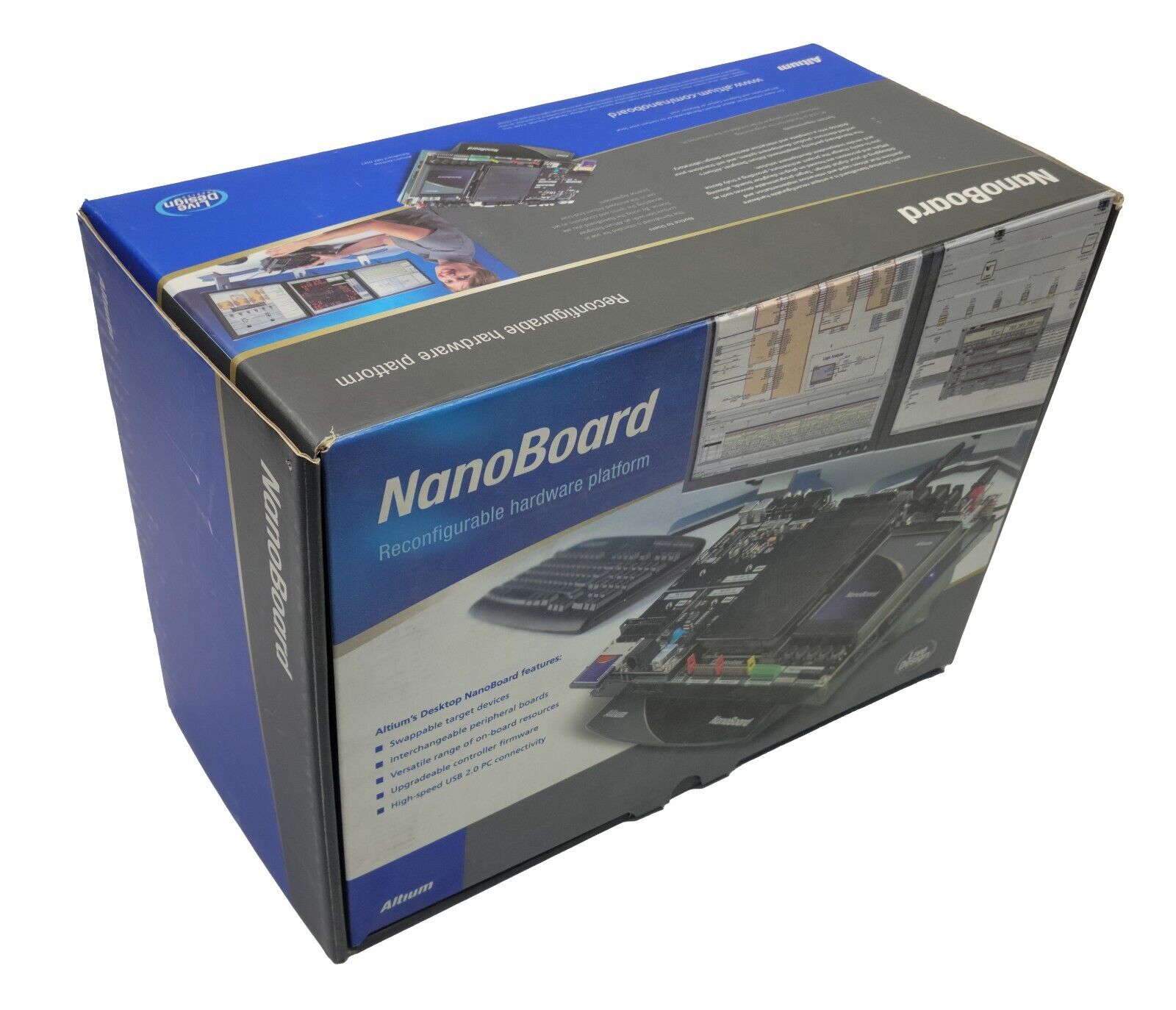Altium desktop Nano board - NO SOFTWARE - TECH BACKUP DREAM PRICE 2024 MARKDOWN For Sale

When you click on links to various merchants on this site and make a purchase, this can result in this site earning a commission. Affiliate programs and affiliations include, but are not limited to, the eBay Partner Network.
Altium desktop Nano board - NO SOFTWARE - TECH BACKUP DREAM PRICE 2024 MARKDOWN:
$395.95
Altium Nano Board NB2DSK01 with NO SOFTWARE or other licenses. This is best for a valid license holder to have a backup development tool.- Altium\'s Desktop NanoBoard NB2DSK01 has the following features:- Altium NanoTalk parallel PC interface- Altium NanoTalk USB 2.0 PC interface- NanoTalk Master and Slave connectors, 10-way- Host status LEDs- Xilinx Spartan-3 (XC3S1500-4FG676C) NanoTalk Controller with JTAG-accessible Flash configuration PROM- Dedicated System JTAG programming port- Dual User Board JTAG headers, 10-way- Three 100-way FPGA daughter board connectors (\'NANOCONNECT\' interfaces)- Three 100-way peripheral board connectors (\'NANOCONNECT\' interfaces) – Peripheral Board A, Peripheral Board B, Peripheral Board C- Programmable clock 6 to 200 MHz, accessible by Altium Designer, firmware (through the interactive GUI), or by a daughter board FPGA design- Fixed 20MHz reference clock- SPI Real-Time Clock with 3V battery backup- Dual 5V DC power daisy-chain connectors with power switch- 5V DC power output connector, for supply of power to a user board- Power supply test points for all supply levels available on the board, including four GND points- Current sense circuits on all power lines to the peripheral board, daughter board and User Board connectors- RS-232 Serial Port – DB9M- CAN Port – DB9M- PS/2 Mini-DIN Mouse Port- PS/2 Mini-DIN PC Keyboard Port- 240 x 320 TFT LCD with touch screen- 50-pin TFT connector- 12-bit SPI touch screen digitizer- Shared use between NB2DSK01 firmware (interactive GUI) and a design running in a daughter board FPGA- 8-way DIP-switch- LED array, 8 LEDS- Serial SPI Flash memory- On-board memories used for firmware:- 256K x 32-bit common-bus SRAM (1MByte)- 16M x 32-bit common-bus SDRAM (64MByte)- 16M x 16-bit common-bus 3.0V Page Mode Flash memory (32MByte)-256K x 32-bit independent SRAM (1MByte)- 1-Wire® memory device used to store board ID and related information- Dual 18-way (20 pin) I/O expansion headers with power supply selection links- Four channel 8-bit ADC, I2C-compatible- Four channel 10-bit DAC, I2C-compatible- Screw terminal header for ADC and DAC- ADC/DAC/I2C 14 pin expansion header- Stereo 2W audio power amplifier with 3.5mm test input jack and DC volume control- Audio mixer (L and R) for combining audio sources:- Line Out from NanoTalk Controller (Delta-Sigma DAC output, driven by FPGA)- Line Out signal wired from peripheral board socket A- Line Out signal wired from peripheral board socket B- Line Out signal wired from peripheral board socket C- Buzzer output from daughter board FPGA design- Stereo audio jacks (3.5mm):- Line In / Line Out- Mic In- Headphone Out- Speaker socket for direct connection of Desktop Stereo Speaker Assembly NB2DSK-SPK01:- provides audio and power signals- provides two SPI buses for control of RGB LED drivers on NB2DSK-SPK01- provides 1-Wire bus for interrogation of 1-Wire ID device on the NB2DSK-SPK01- SD (Secure Digital) card reader, with 512MB SD card supplied- Dual debug headers, 10-way- 5 generic push-button switches made available to NanoTalk Controller and daughter board FPGA- Dedicated ESD pad- Home button – enables firmware to take control of TFT panel and also provides NanoBoard reset functionality- Daughter board test/reset button

Related Items:
Altium desktop Nano board - NO SOFTWARE - TECH BACKUP DREAM PRICE 2024 MARKDOWN
$395.95
![]()
Documentation
- AIX Local Security Checks
- Backdoors
- CentOS Local Security Checks
- CGI abuses
- CISCO
- Databases
- Debian Local Security Checks
- Default Unix Accounts
- Denial of Service
- Fedora Local Security Checks
- Finger abuses
- Firewalls
- FreeBSD Local Security Checks
